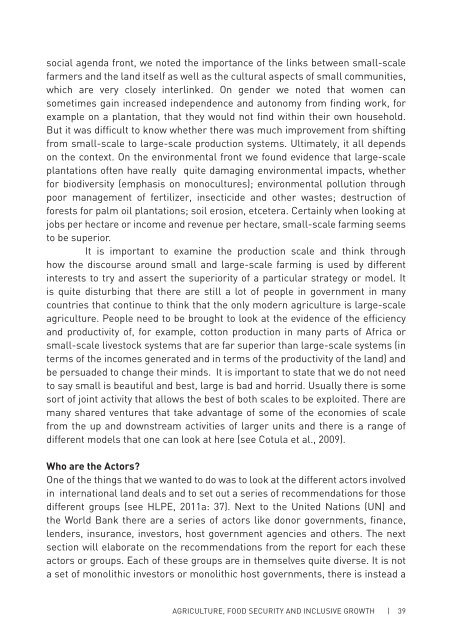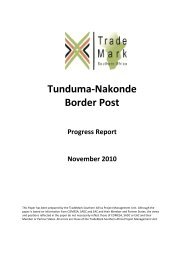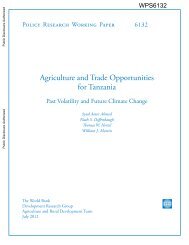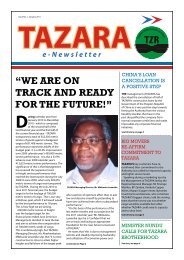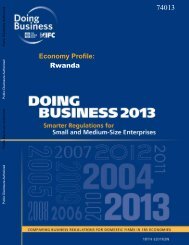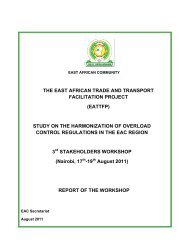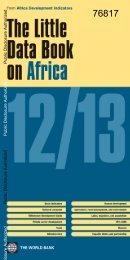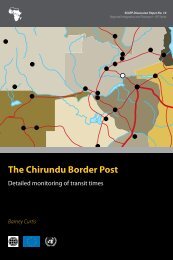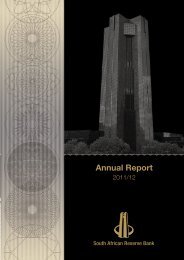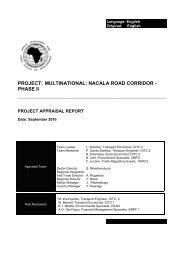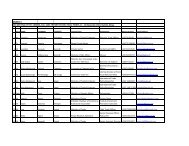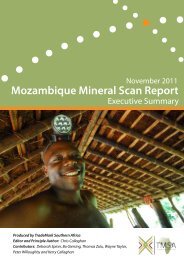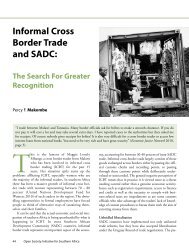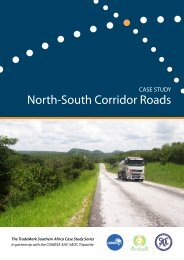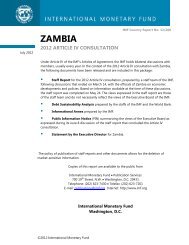Agriculture, Food Security and Inclusive Growth - SID Netherlands ...
Agriculture, Food Security and Inclusive Growth - SID Netherlands ...
Agriculture, Food Security and Inclusive Growth - SID Netherlands ...
You also want an ePaper? Increase the reach of your titles
YUMPU automatically turns print PDFs into web optimized ePapers that Google loves.
social agenda front, we noted the importance of the links between small-scale<br />
farmers <strong>and</strong> the l<strong>and</strong> itself as well as the cultural aspects of small communities,<br />
which are very closely interlinked. On gender we noted that women can<br />
sometimes gain increased independence <strong>and</strong> autonomy from finding work, for<br />
example on a plantation, that they would not find within their own household.<br />
But it was difficult to know whether there was much improvement from shifting<br />
from small-scale to large-scale production systems. Ultimately, it all depends<br />
on the context. On the environmental front we found evidence that large-scale<br />
plantations often have really quite damaging environmental impacts, whether<br />
for biodiversity (emphasis on monocultures); environmental pollution through<br />
poor management of fertilizer, insecticide <strong>and</strong> other wastes; destruction of<br />
forests for palm oil plantations; soil erosion, etcetera. Certainly when looking at<br />
jobs per hectare or income <strong>and</strong> revenue per hectare, small-scale farming seems<br />
to be superior.<br />
It is important to examine the production scale <strong>and</strong> think through<br />
how the discourse around small <strong>and</strong> large-scale farming is used by different<br />
interests to try <strong>and</strong> assert the superiority of a particular strategy or model. It<br />
is quite disturbing that there are still a lot of people in government in many<br />
countries that continue to think that the only modern agriculture is large-scale<br />
agriculture. People need to be brought to look at the evidence of the efficiency<br />
<strong>and</strong> productivity of, for example, cotton production in many parts of Africa or<br />
small-scale livestock systems that are far superior than large-scale systems (in<br />
terms of the incomes generated <strong>and</strong> in terms of the productivity of the l<strong>and</strong>) <strong>and</strong><br />
be persuaded to change their minds. It is important to state that we do not need<br />
to say small is beautiful <strong>and</strong> best, large is bad <strong>and</strong> horrid. Usually there is some<br />
sort of joint activity that allows the best of both scales to be exploited. There are<br />
many shared ventures that take advantage of some of the economies of scale<br />
from the up <strong>and</strong> downstream activities of larger units <strong>and</strong> there is a range of<br />
different models that one can look at here (see Cotula et al., 2009).<br />
Who are the Actors<br />
One of the things that we wanted to do was to look at the different actors involved<br />
in international l<strong>and</strong> deals <strong>and</strong> to set out a series of recommendations for those<br />
different groups (see HLPE, 2011a: 37). Next to the United Nations (UN) <strong>and</strong><br />
the World Bank there are a series of actors like donor governments, finance,<br />
lenders, insurance, investors, host government agencies <strong>and</strong> others. The next<br />
section will elaborate on the recommendations from the report for each these<br />
actors or groups. Each of these groups are in themselves quite diverse. It is not<br />
a set of monolithic investors or monolithic host governments, there is instead a<br />
AGRICULTURE, FOOD SECURITY AND INCLUSIVE GROWTH | 39


